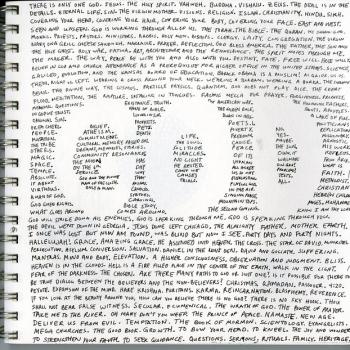Lectionary Reflections, Year A
Genesis 6:11-22, 7:24, 8:14-19
June 26, 2011
The collectors of the lectionary have attempted in this series of texts to offer the preacher something like the story of the flood. Unfortunately, in my estimation their choice has missed what is truly important about this memorable narrative. So, I wish to offer my own collection of texts from Genesis 6-8 in order to tell the ancient tale in its most theologically significant way.
It must be admitted that Genesis 6-8 is definitely a composite text; there are at least two traditions of the flood tale lurking in these chapters. That is made crystal clear to the reader when she notices that the most famous detail of the story, the animal trek into the ark "two-by-two" (Gen. 6:19) is not matched by Genesis 7:2, where she reads that God commands Noah to take "seven pairs of clean animals" but only "one pair of unclean animals" into the ship. The traditional scholarly view of this disparity is that two writers are plying their literary trades in the story. Though I tend to agree, the fact remains that the text we now have is Genesis 6-8. It is that story that needs to be read.
The crucial opening verse of the account is Genesis 6:5: "YHWH saw that the wickedness of humankind was great in the earth, and that every inclination of the thoughts of their hearts was only evil continually." This is the NRSV translation, and it is a fair one. However, there are important nuances in the language that must be noted.
The word rendered "inclination" becomes in later reflection a very important anthropological one. It was said by certain rabbis that every human being possessed a "yetzer tov and a yetzer ra," that is "a good inclination and a bad inclination." These two basic human traits were forever at war with one another for the "soul" of each human. YHWH's appraisal of these pre-flood people is thoroughly negative.
"The thoughts of their hearts" means their wills and intentions, since the "heart" was thought to be the seat of will and intelligence; the Hebrews knew nothing of brains. And these "thoughts" were "only evil, or "without exception bad," literally "all day long." The enormous exclusivity of this sentence cannot be missed. There is exactly nothing to redeem these wretched human beings, and as a result, in an amazing sentence, "YHWH was sorry to have made humankind on the earth," and "was grieved in the divine heart." While the humans know only evil in their hearts, their creator, YHWH, knows only grief and sorrow at the human creation, now gone so badly and completely wrong. From the joy and wonder of the garden of God in chapter 3, we have now come to this: a thoroughly depraved and wicked humanity. The divine one can see no alternative to a cleansing of this evil.
But before the flood is designed to wash the world clean, YHWH chooses Noah (a word meaning "rest") to reconstitute a post-flood world. The Genesis text says precisely nothing about the reasons for YHWH's choice of Noah. Genesis 6:8 merely states that "Noah found favor (grace) in the eyes of YHWH." In other words, Noah appeared favorable in God's eyes; there is nothing distinctive about the old man at all. Well, it does say in Genesis 6:9 that he was a "righteous man, upright (blameless—as is Job in Job 1:1) in his generation." But we cannot forget just what sort of generation Noah is part of—continually wicked! Perhaps we should not overly praise the righteousness of Noah, since he was such only in comparison with his monstrous fellow humans! Nonetheless, he is God's choice for the restoration of the earth.
And so the flood comes, and all things are wiped out, human and animal. Noah's ark contains all that remains of God's good creation of Genesis 1. But at last the floodwaters recede, and after a series of birds leave the ark—a raven, a dove twice—Noah learns that the earth is once again dry and inhabitable. He thus leaves his giant boat, along with his family and his vast menagerie. But the greatest miracle of the story has yet to be heard.
In 8:20 Noah, with appropriate ritual, thanks his God for his, his family's, and the earth's survival and flourishing. He builds an altar and offers clean whole burnt offerings to YHWH. And YHWH's response to the offering, and to the entire episode of the destructive flood is nothing less than astonishing. "And when YHWH smelled the pleasing odor (medium rare?), YHWH said (literally) to his heart, 'I will never again curse the ground because of humankind, because the inclinations of human hearts are evil from their youth; nor will I ever again strike all of life as I have done.'"





